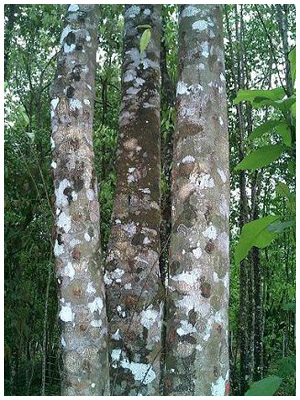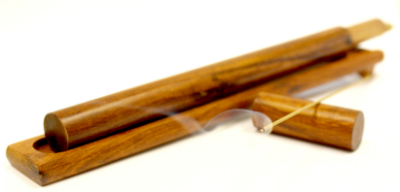Our Agarwood plantation in Vietnam
Creator Universal Agro - Our Fragrant Agarwood

Our team has 20+ years of experience in the fragrant woods business.
The current global market for Agarwood is estimated to be in the range of US$ 6 – 8 billion and is growing rapidly.
First-grade Agarwood is one of the most expensive natural raw materials in the world.
People become ‘addicted’ to our Agarwood – the fragrance is absolutely exquisite.
The odour of Agarwood is complex and pleasing, with few or no similar natural analogues. As a result, Agarwood and its essential oil gained great cultural and religious significance in ancient civilizations around the world, being mentioned throughout one of the world's oldest written texts – the Sanskrit Vedas from India.
As early as the third century AD in ancient China, the chronicle Nan zhou yi wu zhi (Strange things from the South) written by Wa Zhen of the Eastern Wu Dynasty mentioned Agarwood produced in the Rinan commandery, now Central Vietnam, and how people collected it in the mountains. Wu (229–280), commonly known as Eastern Wu or Sun Wu, was one of the three major states that competed for supremacy over China in the Three Kingdoms period (220–280).
1700 years have passed – Creator Universal Agro are growing Agarwood exactly there - in the mountains of Central Vietnam.
Our partner project in Vietnam has 1000 acres / 400 hectares / 4 sq km of Aquilaria trees, which were planted over the past 15 years. The trees are already producing fragrant resinous heartwood – Agarwood.
Our main Agarwood customers are in Japan & the Arab countries.
In Japan our Agarwood is made into very high quality incense.
In the Arab countries Agarwood Oil is extracted & used in perfumes. Agarwood oil is distilled from Agarwood, it fetches high prices depending on the oil's purity.
Agarwood products have enjoyed strong markets for hundreds – even for thousands of years – the demand has never been stronger than it is today.
Yields vary season by season – prices are also fluctuating – but the there is an upward trend in prices.
As well as producing a steady income flow today, this project will give profits to our Creator Universal children & grandchildren.
Creator Universal are launching our own range of Agarwood perfumed products within 2014.
Agarwood

Agarwood, also known as oud, oodh or agar, is the dark resinous heartwood that forms in Aquilaria the trees when they become infected by a parasitic ascomycetous mould, Phaeoacremonium parasitica, a dematiaceous (dark-walled) fungus. Prior to infection, the heartwood is relatively light and pale coloured; however, as the infection progresses, the tree produces a dark aromatic resin in response to the attack, which results in a very dense, dark, resin embedded heartwood. The resin embedded wood is commonly called gaharu, jinko, aloeswood, agarwood, or oud and is valued in many cultures for its distinctive fragrance, and thus is used for incense and perfumes.
Aquilaria crassna and Aquilaria baneonsis trees are the varieties grown in Vietnam.
Machetes are used to cut certain parts of the tree to extract the resinous sections without killing the trees, enabling us to return every two to three years to extract Agarwood again.
Q) Will the prices of Agarwood decline with more plantations?
A) The demand for Agarwood has been steadily increasing, but supplies from natural forests have dwindled almost to ‘0’. There is currently much greater demand than supply for all Agarwood products. Aquilaria tree planting in Vietnam, Cambodia & India has been increasing over recent years and is likely to continue. The current global plantation resource will only partially replace wild-harvested trees and, even with new plantations being established, it is likely that demand will outstrip supply. Consistent prices for Agarwood products are expected in the short to medium term (15–30 years). The long-term price (30 years plus) is dependent on the planting activity of other countries.